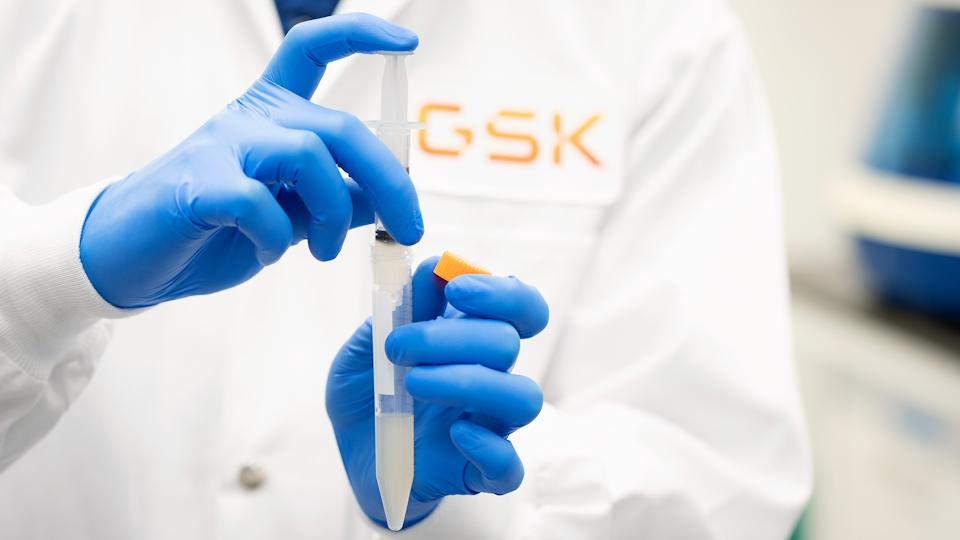GSK’s twice-yearly asthma drug clears two phase 3 trials

GSK’s follow-up to its severe asthma therapy Nucala has shown its value in a pair of phase 3 trials, reducing exacerbations compared to placebo with dosing once every six months.
The company says new IL-5 inhibitor depemokimab (formerly GSK3511294) has the potential to become the first ultra-long-acting biologic for severe asthma with a six-monthly dosing schedule.
If approved for marketing, it would be a companion and successor to Nucala (mepolizumab), a once-monthly IL-5 inhibitor approved for severe asthma and various other indications that made sales of almost £1.7 billion ($2.2 billion) last year.
IL-5 is a key cytokine driving the reproduction, activation, and survival of eosinophils, immune cells that are central to the body’s defence against allergens, as well as fungal and parasitic infections.
More than 50% of patients with severe asthma have high eosinophil levels, making them candidates for biologic therapies like Nucala and other drugs like AstraZeneca’s Fasenra (benralizumab) and Teva’s Cinqair (reslizumab) – also IL-5 inhibitors – as well as Sanofi/Regeneron’s IL-4 and IL-13 inhibitor Dupixent (dupilumab) and Amgen/AAZ’s TSLP inhibitor Tezspire (tezepelumab).
Current biologics have to be given every two or four weeks, so a drug that can be given just twice a year would be a step up in patient convenience
The SWIFT-1 and SWIFT-2 trials compared subcutaneously administered depemokimab to placebo in adults and adolescents with severe asthma with type 2 inflammation characterised by high blood eosinophil counts. Patients in the studies were also being treated with medium to high-dose inhaled corticosteroids (ICS), plus at least one additional bronchodilator therapy.
Both studies met their primary endpoints of a statistically significant and “clinically meaningful” reduction in the annualised rate of clinically significant exacerbations – asthma attacks – over 52 weeks, according to GSK.
“These results add to the established body of evidence that targeted inhibition of IL-5 plays a key role in reducing type 2 inflammation that drives severe asthma exacerbations,” commented Kaivan Khavandi, global head of respiratory/immunology R&D at the pharma group.
The promise of a twice-yearly IL-5-targeting therapy is important because a survey has suggested that nearly three-quarters (73%) of physicians believe longer dosing intervals would be beneficial to patients who are often juggling multiple therapies, he added.
GSK is also running a third phase 3 trial of depemokimab, called NIMBLE, that is exploring the use of the drug in patients switched from Nucala or Fasenra and is also studying it in other Nucala indications, including chronic rhinosinusitis with nasal polyps and eosinophilic granulomatosis with polyangiitis. It has previously modelled peak sales for the new drug of around £3 billion a year.
The positive phase 3 data ticks off another of GSK’s top R&D priorities for 2024, alongside a possible approval of respiratory syncytial virus (RSV) vaccine Arexvy in 50-59 year-olds, filings for its MenABCWY meningitis vaccine and PD-1 inhibitor Jemperli (dostarlimab) in first-line endometrial cancer, and phase 3 results with gepotidacin in gonorrhoea and urinary tract infections and Nucala in chronic obstructive pulmonary disease (COPD).













